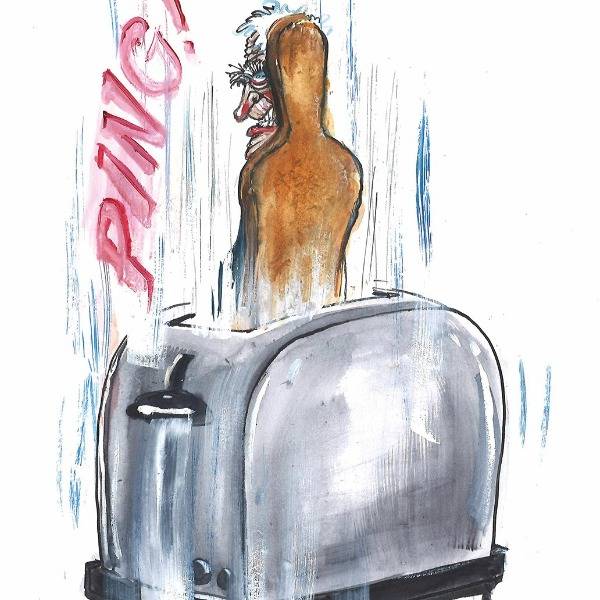That a 17th-century philosopher can provide a jokey American bumper sticker proves that his most famous dictum still rings true. The answer of René Descartes (1596-1650) to the enigma of self "I think, therefore I am" is not far from the definition of consciousness currently offered by neuroscientists such as Antonio Damasio of the Salk Institute in California. Damasio's The Feeling of What Happens (1999) defines consciousness as what emerges as the body collects information on the state of its cells and tissues and strives to keep them stable, giving each body a sense of what we call, and Descartes called, 'I'. To be sure, Descartes had to preach dualism; that there is a soul as distinct from the body and that a good God presides over all. As Anthony Grayling shows in this graceful biography, Descartes, mathematician and philosopher, unlike modern brain researchers, worked under fear of death. As a Catholic, trained by the Jesuits at a college in the Loire, he was well aware of the perils of new scientific knowledge. Giordano Bruno was burned at the stake in 1600 and Galileo Galilei confined in permanent house arrest in 1632 for defending the Copernican discovery that the Earth goes around the sun, and not vice versa.
How could natural science be studied without the pretence of hypothetical "ifs" about imagined worlds? Descartes used his own mind as the base of inquiry. Determined to eliminate everything about which he had doubt, he realised that while he could pretend he had no body, he could not possibly pretend he could not think. (He did, even so, find an anatomical location for the soul in the pineal gland.)
He is considered the father of modern science precisely because of this respect paid to doubt. He wrote his Discourse on Method as the result of a vision of a method to unlock all knowledge, to demolish falsehoods and start fresh. This vision came to him in a dream in November 1619 (incidentally, just a year before the Pilgrims landed at Plymouth, Massachusetts to colonise the New World). His resulting book, written in French, not in Latin, so that ordinary people might read it, included essays on optics, meteorology and geometry, and is considered, with Newton's Optics, a seminal text of the modern world.
Born near Tours, he decided, after taking a degree in law from Poitiers that, rather than studying arts or sciences, to "seek no knowledge other than that which could be found in myself or else in the great book of the world". Thus he travelled, left Paris and joined the army of the Prince of Orange in the United Provinces of the free Netherlands. There he began his mathematical studies and positioned himself as a Catholic on the Protestant side in what was to become the 30 Years' War.
The best parts of this book by Grayling, professor of philosophy at Birkbeck College, are the two appendices; one explains Cartesian philosophy, the other questions the philosophy of the biography of philosophers. Faint praise as this may sound, it is acknowledgement of the reality that Descartes is no biographer's dream. Information is scanty, letters few. The philosopher deliberately concealed facts and kept his private life secret, especially the 20 years spent in Holland during the Dutch Golden Age.
To flesh out this thin life story Grayling retraces the footsteps of the subject. His descriptions of Descartes's decades in Holland leave a glow like a tour of the Rijksmuseum. But what was he doing in Holland and why was he so secret about his life there? The known facts are sad. He never married, he claimed to have had sexual intercourse only once. His partner, Francine, a serving girl in Amsterdam, gave birth to a daughter whom he loved, then lost when she was five in 1640, to scarlet fever. Francine shortly after.
So: was Descartes a spy? Grayling, with proper caveats, raises the question. How else to explain the philosopher's uncharted exile, his mysterious visit to a French cardinal or his presence at the Battle of the White Mountain near Prague when the Catholic Maximilian of Bavaria drove the Protestant elector, Frederick V of the Palatinate, into exile.
The evidence, meticulously collected, difficult to decipher, might be read either way. Descartes, it seems, might have been spying for the Jesuits in favour of the Catholic Hapsburgs, and might even have been trying to collect information for them on the spreading sect of Rosicrucianism. "Descartes knew a surprising number of Rosicrucians," asserts Grayling.
Eventually Descartes moved back to Paris, but fled when the barricades went up in 1648 for a clash known as 'the Fronde'. Deprived of the French pension he had expected, he made a fatal move to Sweden. He was flattered by the invitation of Queen Christina of Sweden, who imperiously made him stand bareheaded at five o'clock in the morning in an unheated room in a Scandinavian December to deliver her morning philosophy lecture.
He caught his death of cold and, true to the protracted illnesses of his times, died in February 1650. His body, minus the head and various other bits snatched by eager relic hunters, was, and remains, buried in the Church of St. Germain-des-Prés.
This interesting, lucid and succinct book could have benefited from a map or two. The long historical passages and progression of forgotten kings, princes, electors and fiefdoms make heavy going for anyone not up to scratch on the battles and alliances of the Counter Reformation and the 30 Years' War. Reader-navigation, nonetheless, is helped by an excellent index.

